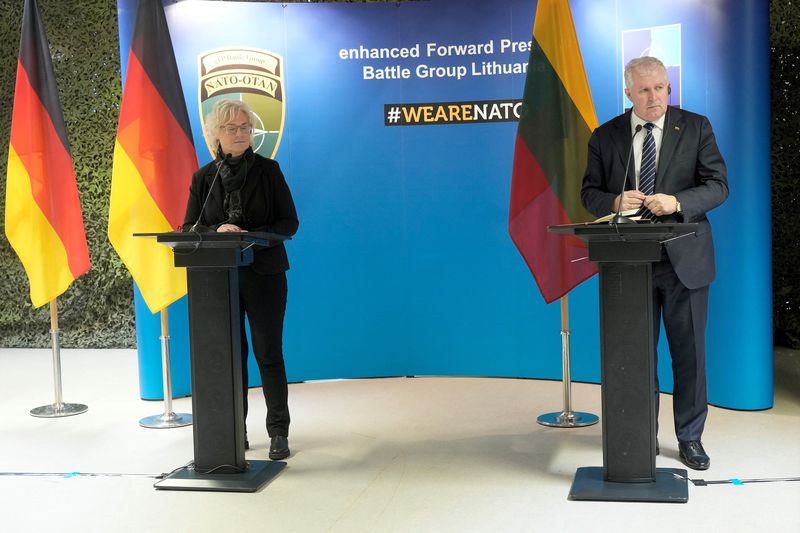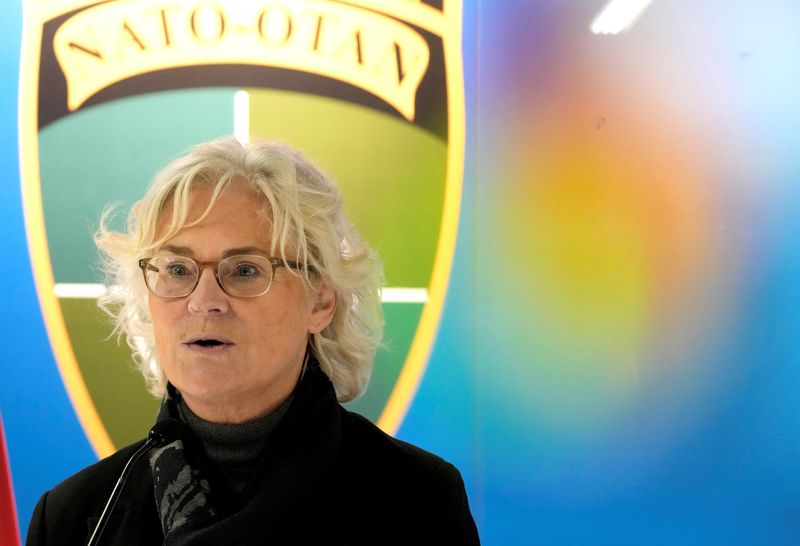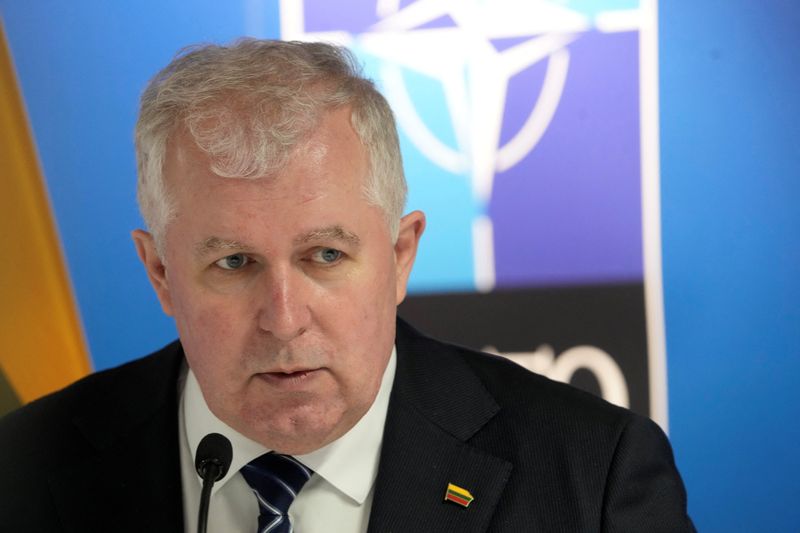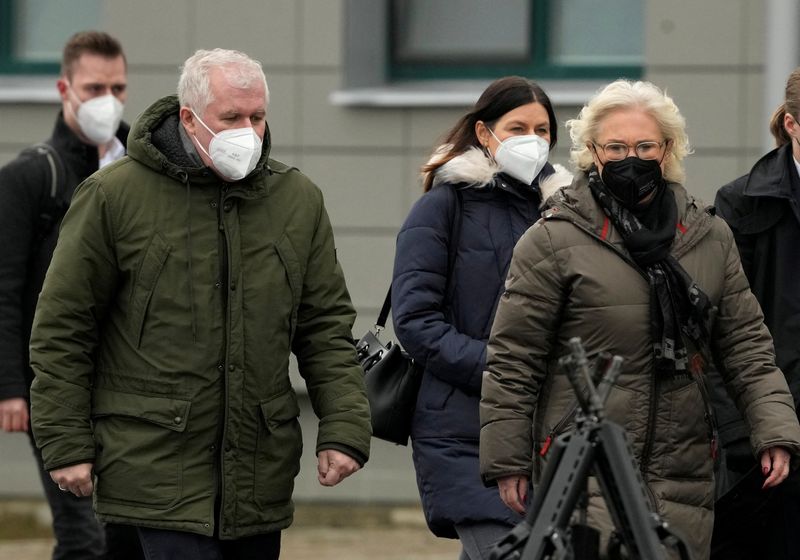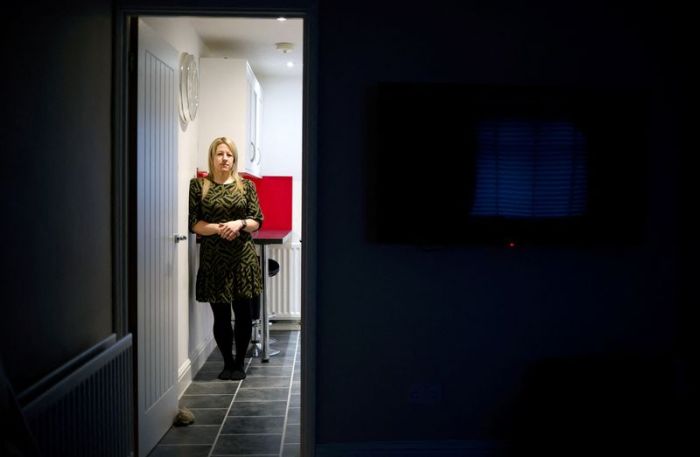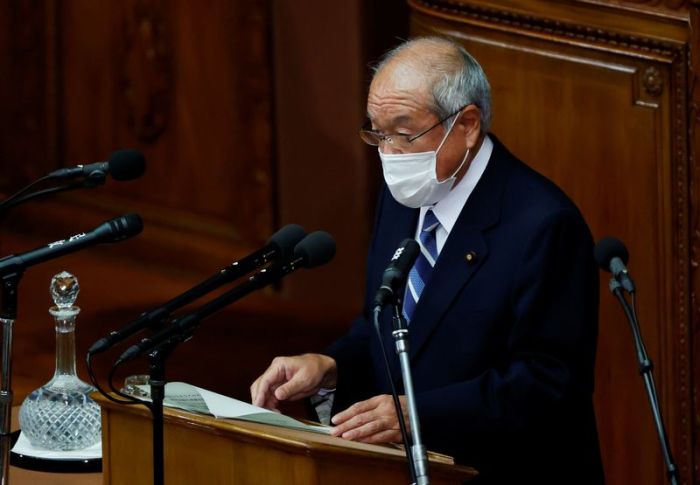RUKLA MILITARY BASE, Lithuania (Reuters) -Germany could send more troops to Lithuania and other countries on NATO’s eastern flank after Russia formally recognised two regions of Ukraine as independent, German Defence Minister Christine Lambrecht said on Tuesday.
“It is clear that we need to apply stricter deterrence measures,” Lambrecht told a joint news conference with her Lithuanian counterpart at the Rukla military base.
“I want to underscore that we are ready to send more troops, land and air. We are ready to send more troops also to Lithuania and signal that we are together with partners and we are a trustworthy partner in a crisis,” she said.
Germany is now assessing the needs for reinforcements and will make decisions in the near future, Lambrecht said. Deployments would not be limited to Lithuania.
“We are talking about all of the eastern NATO flank. We are watching all this and we must make sure that the eastern flank is well protected. We are now looking into what additional measures we should take.”
German soldiers comprise about half of a 1,100-strong NATO battlegroup in Lithuania that includes troops from Belgium, the Czech Republic, Luxembourg, the Netherlands and Norway.
Possible further reinforcements flagged by Lambrecht on Tuesday would come on top of some 360 German soldiers now being added to the battlegroup, while Norway announced plans to increase its participation by 50-60 soldiers.
Separately, Britain is reinforcing the British-led NATO battlegroup in Estonia with 800 troops.
“QUITE A LOT”
After these and expected future reinforcements, NATO forces in the Baltic States – Lithuania, Latvia and Estonia – will almost double and will reach more than 6,000 troops in three battlegroups in each country, Lithuania’s Defence Minister Arvydas Anusauskas told Reuters.
The NATO troops in the three countires numbered about 3,400 at the beginning of the year.
“After all the additions, Lithuania and Estonia will have over 2,000 NATO troops. Latvia maybe a bit less but still quite a lot”, he said.
NATO has set up four multinational battlegroups of just over 1,000 troops each in Estonia, Lithuania, Latvia and Poland in 2017 after Russia annexed the Crimea region from Ukraine.
They are set up to act as a tripwire and buy time by holding off any assault until reinforcements arrive.
(Reporting by Andrius Sytas, editing by Terje Solsvik, Mark Heinrich and Angus MacSwan)

